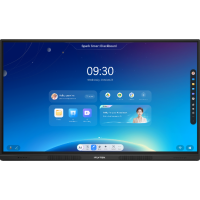August 12, 2025
iFLYTEK Hosts High-Level Multilingual Foundational Large Models International Symposium in Shanghai, Gathering 30 Global Experts to Chart New Paths for Inclusive AI Development
On the morning of July 28 during the 2025 World Artificial Intelligence Conference, iFLYTEK successfully held the "High-Level Multilingual Foundational Large Models International Symposium" in Shanghai, centered on the theme "Building a New Intelligent Language Ecosystem to Empower Global Digital Civilization." The symposium brought together around 30 leading experts from academia, industry, and research institutions across nearly 20 countries and regions in Asia and Europe to explore breakthroughs in multilingual large-scale AI models and their global implementation strategies. Ten distinguished AI experts from China, the UK, Hungary, Serbia, Israel, Iran, Thailand, Malaysia, Cambodia, and other countries delivered keynote speeches, sharing insights on advancing multilingual AI technologies and their worldwide applications.
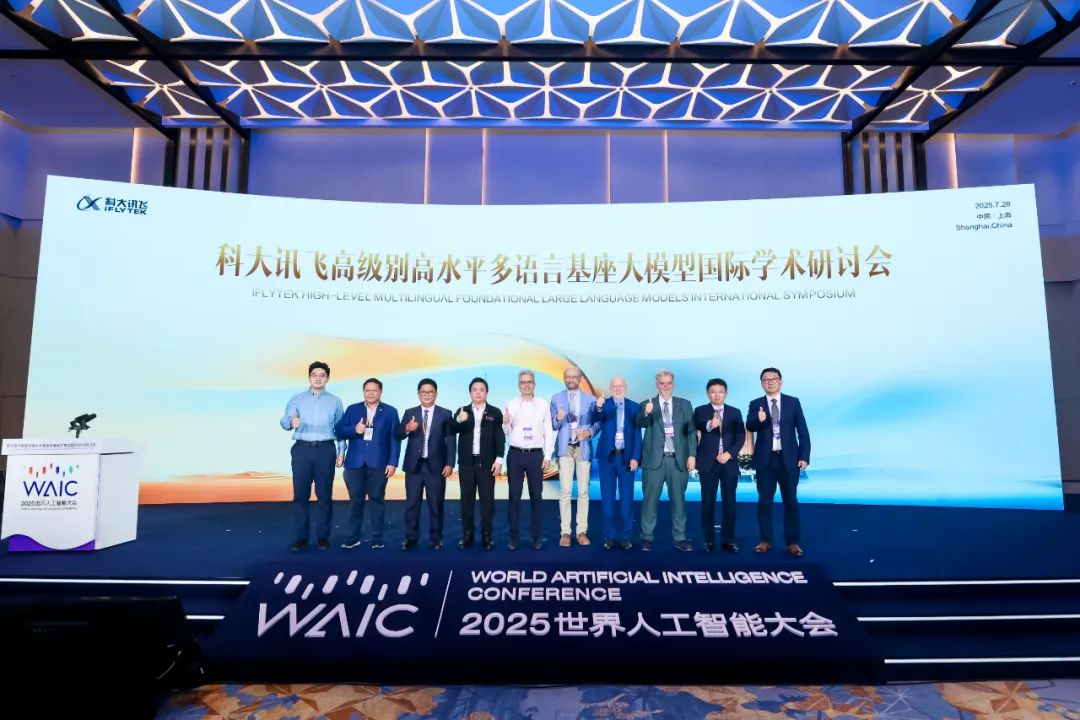
Offering the World an Alternative Path in AI Development
In his keynote address, Liu Cong, Dean of iFLYTEK Research Institute, made a clear declaration: "We are committed to building a comprehensive multilingual large model ecosystem to provide the world with a second option in AI development."
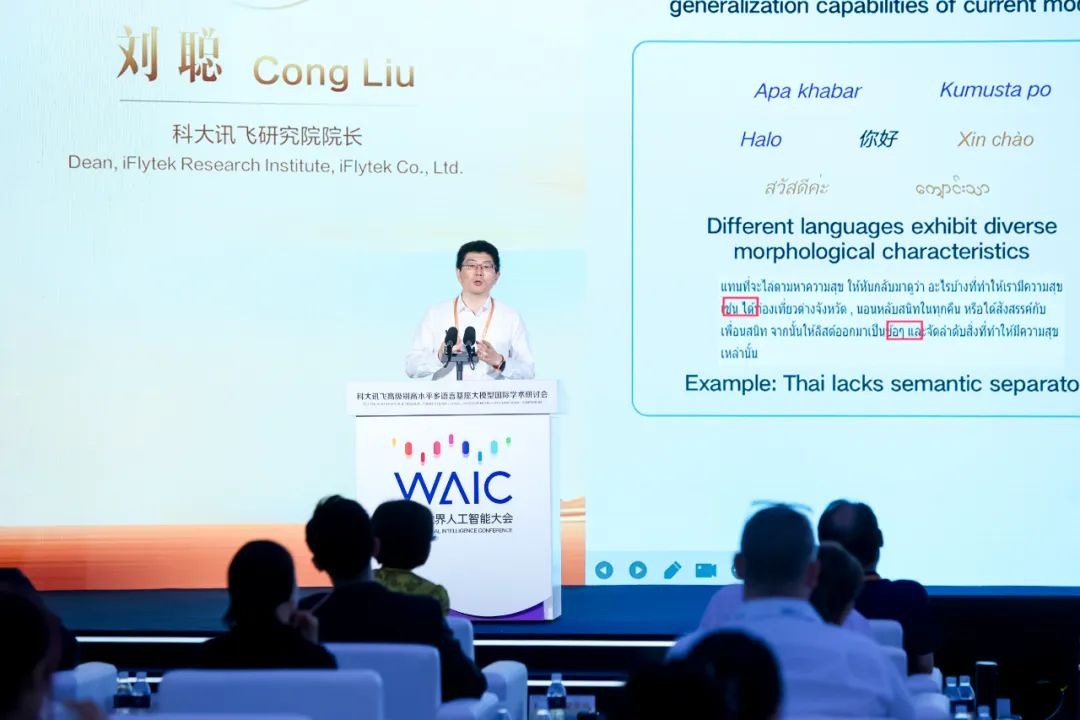
Liu introduced the newly upgraded iFLYTEK Spark X1, which now supports over 130 languages. The model demonstrates outstanding performance across key languages including Arabic, German, French, Korean and Japanese. Through technological innovations such as mixed-language routing, SPARK Large Speech Model achieves industry-leading results, supporting speech recognition in 100 languages and high-quality speech synthesis in 55 languages.
In his address, Liu Cong further outlined iFLYTEK's systematic roadmap for advancing the Spark Multilingual Foundational Model. He emphasized three key development priorities moving forward: advancing collaborative development of multimodal "speech + text" datasets to break down semantic barriers across modalities; building native multilingual speech capabilities into the core model architecture to enhance intrinsic understanding of global language ecosystems; and developing universal multilingual models with cross-lingual knowledge transfer capabilities to enable effective knowledge sharing and enhanced generalization across different languages. The comprehensive approach aims to create more adaptive and linguistically-aware AI systems for worldwide deployment.
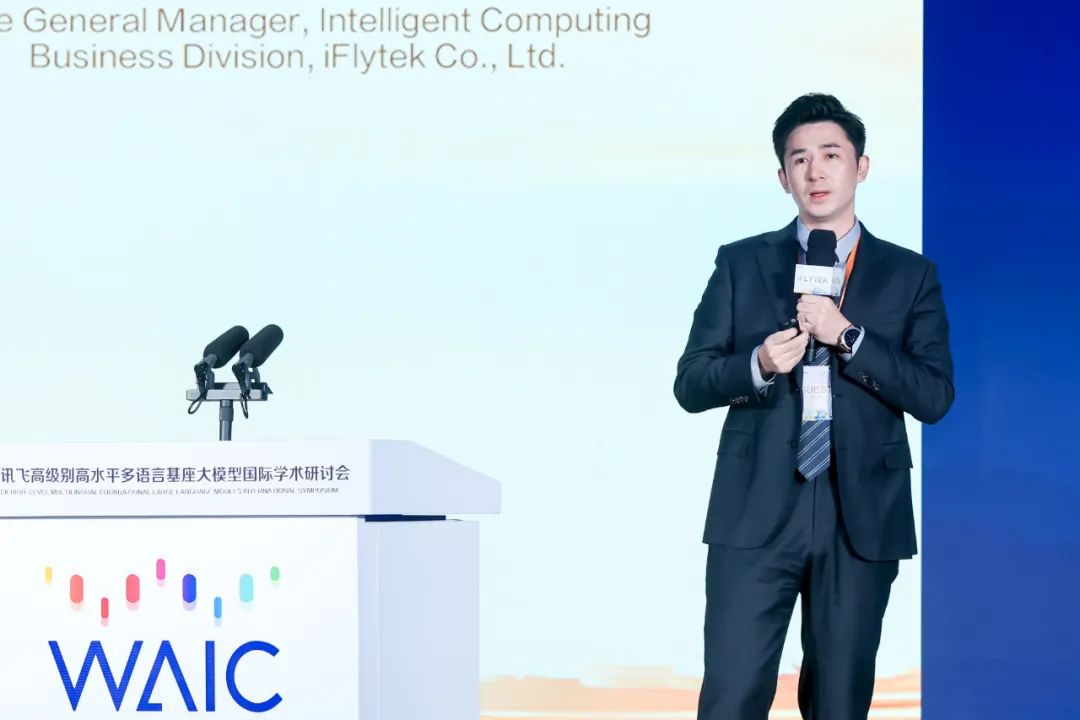
Zhang Xiao, Vice General Manager of iFLYTEK's Intelligent Computing Business Division, highlighted both the rapid growth and critical efficiency challenges facing China's intelligent computing sector. He identified three persistent industry-wide pain points: the breakneck pace of hardware iteration, inadequate availability of usable computing power, and suboptimal utilization rates of existing resources. To overcome these challenges, Zhang advocated for evolving the conventional "computing power + algorithms + data" paradigm into a more comprehensive five-dimensional framework, incorporating two crucial new dimensions: application scenarios and ecosystem development. Zhang emphasized that establishing public AI service platforms would enable more efficient computing resource allocation while fostering developer ecosystems, ultimately leading to optimized resource utilization and sustainable growth of China's intelligent computing sector.
Bridging the AI Digital Divide: Every Language Deserves Its Own Large Model
The digital divide in AI is becoming increasingly apparent as mainstream large language models offer limited support for low-resource languages due to scarce digital corpora, risking the marginalization of smaller linguistic communities. This pressing issue emerged as a key discussion point among international experts at the symposium.
Professor Vlado Delić, Dean of the Faculty of Technical Sciences at Serbia's University of Novi Sad, revealed a striking imbalance: Serbian constitutes fewer than 0.1% of tokens in general-purpose models— significantly less than even Slovenian. "AI language models must move beyond serving dominant languages," he asserted. "Every language community deserves AI that truly understands its cultural identity." The Serbian scholar stressed the critical need for nation-specific large models, particularly for sensitive applications in healthcare and legal systems where inaccurate translations could have serious consequences. His remarks highlighted how language technology is becoming a matter of national importance in the AI era. Professor Delić outlined an ambitious collaboration with iFLYTEK to integrate Serbian language technology into global AI systems. The partnership, which has already established a concrete roadmap, aims to incorporate Serbian and other South Slavic languages into iFLYTEK's translation devices and intelligent applications. A key target is developing a localized large model for the region in time for the 2027 Belgrade Expo, marking a significant step toward linguistic equity in AI.
Avner Algom, Founder and Executive Director of the Israel Association of Human Language Technologies (IAHLT), delivered a powerful message: "True language technology equity must include minority languages—not just dominant world languages." Highlighting a unique linguistic paradox, Algom noted that while Hebrew stands as the world's only successfully revived ancient language in modern usage, it paradoxically remains severely underrepresented in natural language processing resources. The IAHLT leader revealed their organization's breakthrough achievement: developing a robust Hebrew-English bilingual large model using open-source frameworks, currently transforming key sectors including education, healthcare, and customer experience. Facing typical low-resource language challenges—from data acquisition legality to prohibitive training costs—IAHLT has implemented innovative solutions including fiscal incentive programs and strategic industry partnerships to ensure sustainable development of Hebrew language AI.
Technology for All: Advancing a Shared Future for Humanity Through Multilingual AI
The symposium highlighted China's groundbreaking progress in implementing multilingual AI solutions. The newly enhanced iFLYTEK Spark X1 represents a major leap forward, now supporting an impressive 130+ languages while achieving world-class performance in core capabilities including translation, logical reasoning, text generation, and mathematical processing. Particularly noteworthy are the system's significant advances in reducing AI hallucinations—a critical development that substantially improves model reliability for real-world industrial applications.
To date, iFLYTEK's multilingual solutions have enabled voice interaction capabilities for 120 million smart devices from leading Chinese manufacturers like BYD and Haier, supporting 23 languages across global markets. These technologies have been successfully implemented across Africa and Southeast Asia, providing essential language AI infrastructure to facilitate the international expansion of China's intelligent manufacturing sector. In advancing AI ecosystem development, iFLYTEK has made 813 AI capability interfaces publicly available, serving over 10 million developers worldwide—including 272 specialized multilingual AI functions designed to meet diverse linguistic needs.
The symposium forged unanimous agreement among global experts: in today's increasingly interconnected world, multilingual foundational models transcend technological innovation to become vital instruments for fostering cross-cultural dialogue and advancing our shared human future. iFLYTEK will pursue a dual-driven strategy combining technological empowerment with ecosystem collaboration. By partnering with international stakeholders to establish open platforms and jointly develop solutions, we will share both technical advancements and practical applications - actively contributing to a more inclusive and equitable global AI landscape that benefits all.
More News
-

 Industry First: Bluey and Other Classic English Animations Launch Exclusively on iFLYTEK AI Learning Machine
Industry First: Bluey and Other Classic English Animations Launch Exclusively on iFLYTEK AI Learning MachineJanuary 14, 2026
-

 iFLYTEK Showcases at the 2025 China International Travel Mart
iFLYTEK Showcases at the 2025 China International Travel MartJanuary 08, 2026
-

 2025 World University Presidents Forum Hosts "AI and Scientific Research Paradigms Shift"
2025 World University Presidents Forum Hosts "AI and Scientific Research Paradigms Shift"November 25, 2025
-

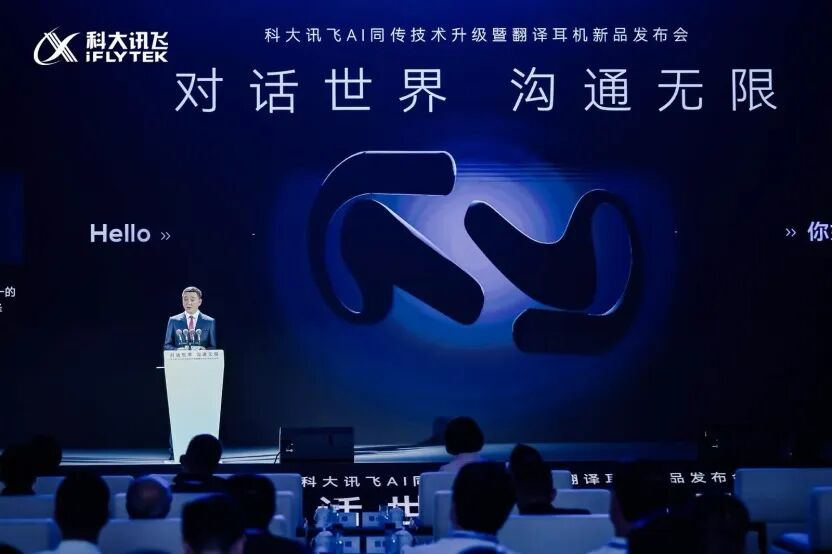 iFLYTEK Upgrades Simultaneous Interpretation Model and Launches iFLYTRANS Headsets in Shanghai and Dubai
iFLYTEK Upgrades Simultaneous Interpretation Model and Launches iFLYTRANS Headsets in Shanghai and DubaiOctober 31, 2025
-

 Spotlight on DMEXCO 2025: Join iFLYTEK AI Marketing to Shape the AI-Driven Future of Digital Marketing
Spotlight on DMEXCO 2025: Join iFLYTEK AI Marketing to Shape the AI-Driven Future of Digital MarketingOctober 22, 2025











